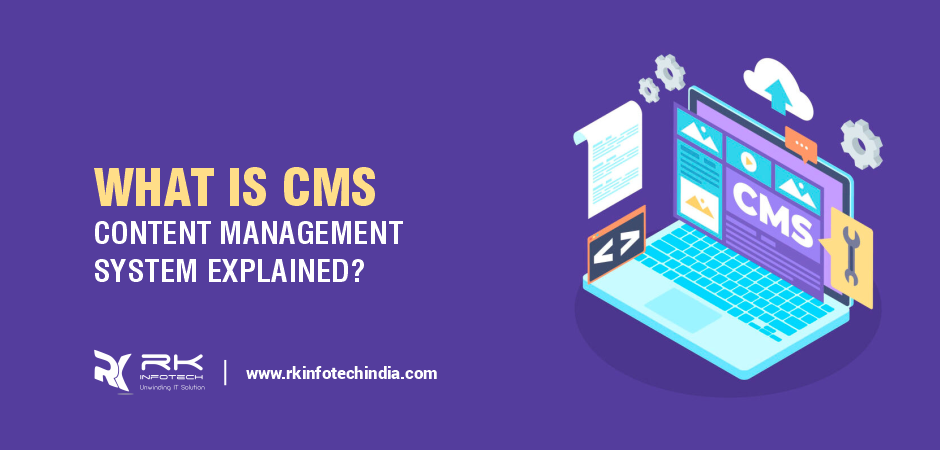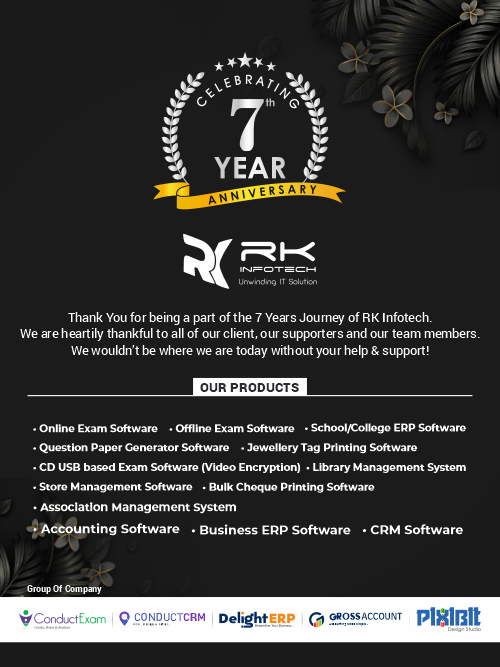What is CMS – Content Management System Explained?
Content Management System(CMS)
The Content Management System is also known as CMS. Various enterprises or businesses in the digital market are focusing on developing SEO-friendly content to attract more users to their websites.
Companies may now simply manage their content using numerous CMS platforms. There is no need for any IT expertise with the help of the tools. These CMS technologies can be used by non-IT people to create appealing content that will grab the interest of new clients.
Content can be simply created, updated, and deleted by enterprises. Additionally, the CMS technologies provide many options for businesses or firms to attract new customers and enhance their sales ratio.
Content Management System(CMS) for the website
Almost every organization has its website in today’s world of the internet. The arrangement of the website allows them to supply their customers with regular updates.
Organizations provide information by posting updates on their websites about new product launches, product offers, events, etc. Companies can have a positive and impressive impact on the minds of consumers by implementing these updates.
There are several methods for giving updates…
1. Blogs
The blog post discusses well-known content marketing strategies and techniques. Companies can use the blog to convey brief information about their services or products.
Organizations may effortlessly update their blog posts with the help of CMS technologies. They can also manage the design of the blog post utilizing the CMS tools’ plugins and make it suited to their needs. As a result, adding, deleting, and updating blogs is becoming a simple operation for businesses.
2. Portfolio sites
With the CMS, even the most basic static site can now be created quickly. Small businesses can easily create their portfolio sites using the CMS.
3. eCommerce Store
Small businesses can simply create their eCommerce stores with a basic understanding of the plugins.
Companies can connect with customers on the internet with the help of an eCommerce store. The organization also allows visitors to purchase things via the internet. Companies require attractive, well-organized, and trustworthy content for their websites to gain consumer trust.
4. Social communities
Businesses are now using social media plugins for their websites to make them more engaging. Companies can learn more about their products by using social media links. CMS allows start-up enterprises to make the most of their social communities.
Also Read: Benefits of Using Social Media Marketing & Why Use Social Media in Website
Why do businesses need a Content Management System(CMS)?
A content management system (CMS) is a program or application that allows small and large enterprises to create and manage digital content on their websites.
WordPress, Joomla, Drupal, and other CMS technologies are only a few examples. The majority of companies use WordPress to manage their web content. There are several reasons why Content Management Systems are beneficial.
1. Making the website more efficient
Web developers are usually the ones who create the website. However, for corporations with no experience in the IT industry, maintaining the website once it has been developed appears to be a difficult task. However, with the help of a CMS, administering a website has become a lot easier for businesses.
As a result, the firms can readily deliver the most up-to-date information about their products or services via their websites.
2. Advanced SEO tools
The CMS comes with several tools and plugins. Developers can create an effective site for businesses with the help of this plugin.
The goal of designing the website is to improve the company’s revenue. Developers also help companies in the creation of SEO-friendly websites. Companies can use SEO tools to create web pages that help increase traffic to their websites. Increased traffic also means more opportunities to gain new customers’ trust.
3. Cost-effective
Several local organizations, however, do not have their website due to a lack of funds. However, by offering the CMS, users would be able to construct their websites quickly and at a minimal cost. As a result, they may be able to draw customers to businesses with social interfaces or online presence.
Furthermore, firms never need to contact the developers to update or change minor details. As a result, they save time by connecting the developer to the data change.
4. Security
When operating online, the company’s security is important. Various hackers are targeting eCommerce sites to steal personal information from businesses. As a result, CMS tools are now updated daily. Several plugins can help to increase the security of a website or an eCommerce store.
Benefits of Content Management System(CMS)
Organizations or businesses enter the market to take full advantage of their sales ratio. As a result, organizations customized various benefits by utilizing the content management system.
1. Easy for non-it persons
CMS is a component of a website, which is designed by professionals or well-known IT personnel. However, since the introduction of the content management system, updating the site has been much easier for the company.
New offers, catalogs, lists, items, and other information can be quickly added or updated by people who are not in the IT industry. Companies may easily manage their site content combined with an advanced plugin.
2. Multiple users
The administrator is not the only one who manages the company’s website. The administrator assigns credentials to users for various jobs to manage the company’s website.
As a result, multiple users or people are in charge of the organization’s website. Companies’ workloads will be decreased as multiple users are handled, and the site will operate more efficiently.
3. Streamline scheduling
The total insight is available to companies via the CMS. This feature applies not only to blog posts but also to the overall view of the pages and determining the website’s condition.
Additionally, businesses can schedule their articles and pages. The company can minimize the bounce rate of the websites by analyzing the posts or pages.
4. Improve web traffics
Increasing site traffic opens up lots of new possibilities for enterprises and businesses. For this, the businesses used SEO technologies to improve the website’s performance.
Businesses can attract new visitors to their websites by selecting appropriate keywords and presenting SEO-friendly content. With more visitors, the companies may reach out to new customers and expand their customer base.
5. Easily change the design
The CMS tools come with several pre-installed themes and plugins. When businesses need to change the design of their website, they can easily use the built-in themes to make the necessary modifications.
In the minds of consumers, change has a significant impact. In some circumstances, a company’s website’s bounce rate can be reduced by modifying the site’s look. Consumers are driven to the site because it was attractive and quick to load.
6. Manage the content
Companies almost always have to modify the content regularly. As a result, they may simply update their content in a short period using the Content Management System tools.
When industries manufacture new products, they can update their product listings on the website. In addition, as they change or upgrade their services, the CRM tools will automatically update the sites. As a result, anyone can now manage the content of a website.
Recommended for you: Are You Launching An eCommerce Business? Here’s What You Need To Consider
Conclusion
Companies must keep up with the changing world to enhance their profitability. As nothing more than a reason, all small and large firms can benefit from using an internet site, online marketing platforms, social media posts, etc.
The corporation can communicate with customers online and persuade them to buy the goods by using numerous marketing channels or by developing a website. Companies’ work has been easier because of the Content Management System. As a result, non-IT persons and small enterprises now have attractive options to grow their firms in a competitive market.








